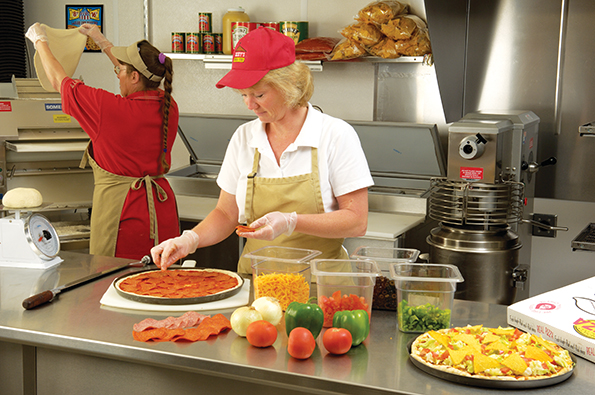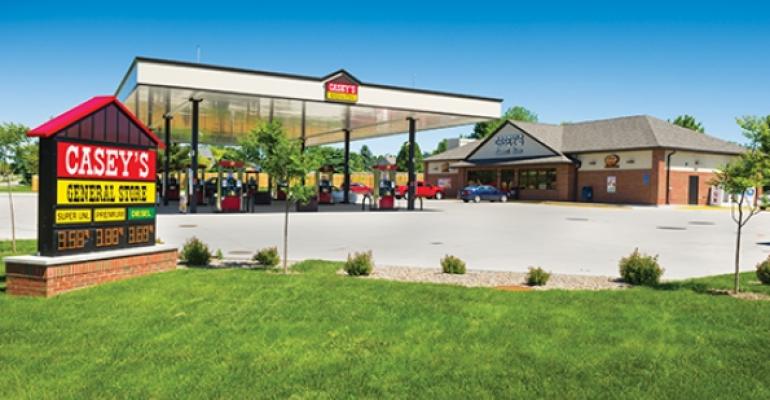Casey’s General Stores Inc. launched Monday its latest salvo in the battle for pizza lovers: A new mobile app, complete with the ability for customers to order pizza or sandwiches.
The chain had a soft launch of the app in December, said Bill Walljasper, CFO of the Ankeny, Iowa-based chain of more than 1,900 Midwest convenience stores.
“We’re connecting with a customer base we haven’t connected with before,” Walljasper said. “It’s a great way to adapt to the changing needs of the customer base.”
The company also hopes it will sell more pizza. Casey’s has been selling pizza for decades, but it has recently undertaken more aggressive efforts to compete directly with pizza chains.
Recently, for instance, the c-store chain started delivering. Casey’s will offer pizza delivery to 400 locations by the end of April. That puts Casey’s squarely in the same business occupied by Papa John’s, Domino’s and Pizza Hut.

“We have a stronger emphasis on prepared food offerings,” Walljasper said, noting that the company serves doughnuts and sandwiches, but pizza is its flagship item.
For Casey’s and for other convenience stores, the move into prepared foods is a financial boon. As it is, prepared foods represent only about 8 percent to 10 percent of the company’s revenue, which totaled about $4 billion in the first six months of its fiscal year ended Oct. 31.
But food makes up more than 30 percent of Casey’s gross profit, which totaled $854.2 million in the same period.
“We get more penny profit from prepared food than we get from fuel,” Walljasper said. Fuel prices are volatile, while food prices are more stable. Food has also enabled c-store chains to recover sales and profits lost from the decline in cigarette sales and other items they have traditionally sold.
Convenience store prepared food sales were estimated to be $217.1 billion in 2015, according to the consulting firm Foodservice Solutions, an increase of 4.8 percent over 2014.
And just as restaurants have used mobile apps and delivery to get more aggressive in courting convenience-oriented customers, so too have convenience stores. The Dallas-based c-store chain 7-Eleven, for instance, started delivery in several cities last fall.
The Media, Penn.-based convenience store chain Wawa is testing its own mobile ordering app. But Casey’s is believed to be the first c-store chain to put mobile ordering to broad use in the U.S.
The app is important for a chain that wants to sell more pizza. Major delivery chains like Domino’s and Papa John’s have used mobile ordering to significantly increase their business.
“People are demanding more and more convenience,” Walljasper said. “You’ve got to be convenient to customers.”
“It’s no different than when pay-at-the-pump came out,” he said. “It’s one of the services customers demanded. You don’t want to be at a competitive disadvantage.”
Contact Jonathan Maze at [email protected]
Follow him on Twitter: @jonathanmaze




